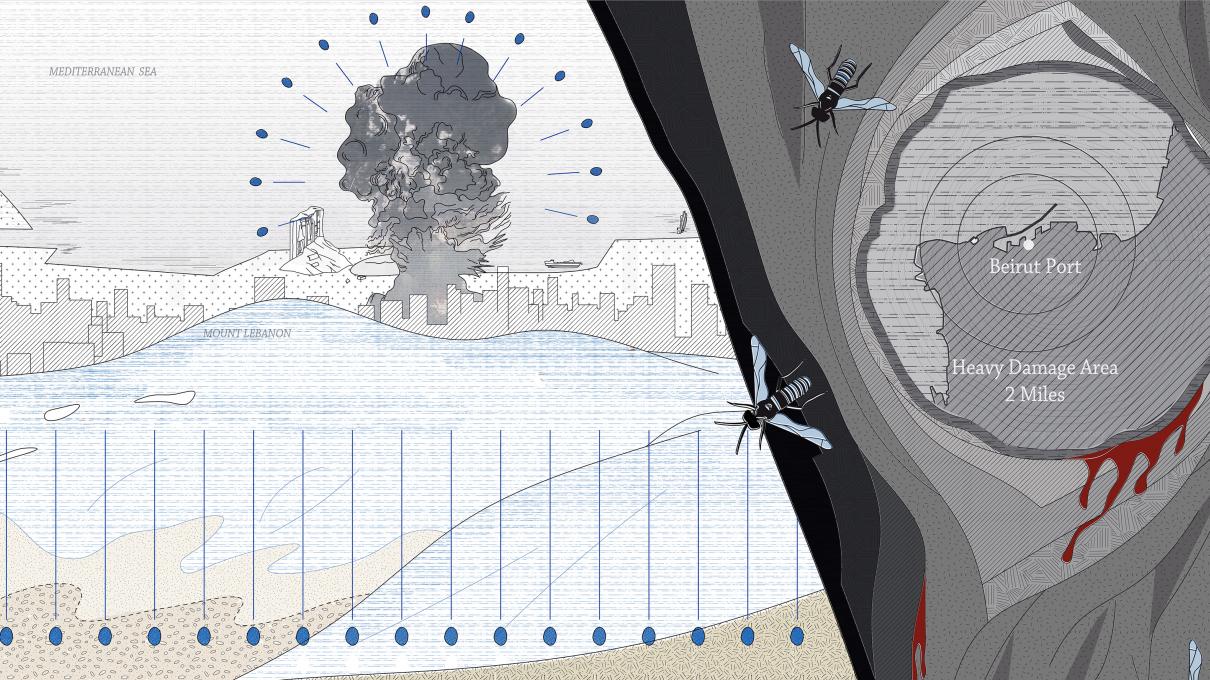Beirut Port Futures

Rania Ghosn
The massive Beirut explosion on August 4, 2020 destroyed large sections of the port and its infrastructure, including most of Beirut's grain reserves, and inflected an estimate $15 billion in material damages across the city. The question of Beirut’s recovery following the explosion casts light on the port, not only its future reconstruction but also its intertwined history with that of the city and its role in the production and reproduction of urban and economic inequities in Lebanon. The history of the Port of Beirut is tied to the rise of Lebanon’s financial system, in peace and wartimes, and its current collapse following a widening trade deficit. The question of reconstruction begs hence the coupling of future speculations with historical narratives, analyzing the relations of the port to the city, urban waterfront, national coastline and economy, Mediterranean maritime infrastructure and the broader hinterland of the Middle East. Beirut Port Futures is an urban design research that makes explicit the values and priorities embedded in the construction and reconstruction of the maritime infrastructure to make such controversies and frictions visible and public. This project reconstructs the history of the port to speculate on its possible futures in a critical imagination of how the city, country, and region can be otherwise. The speculative narrative approach outlines competing ideas and trajectories about where and how to reconstruct the port–including plans for partial or total relocation and what programs to house whether to maintain its functions, convert it to a cruise terminal, or diversify into a light industry sector– begging the question of how to deal with compounded and intergenerational traumas, whose interests to give form to, and how to think of “sustainable” models of the nation state and its economy. The output includes an urban narrative in animation format and a gallery exhibition in the port neighborhood.
Funding for this research was provided by the Dar Group Urban Seed Grant Program at the Norman B. Leventhal Center for Advanced Urbanism, Massachusetts Institute of Technology.


